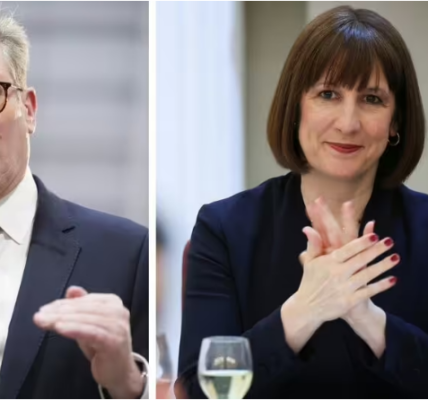This comes despite Labour’s promises not to raise taxes on working people.

Rachel Reeves’ triple tax raid laid (Image: Getty)
Chancellor Rachel Reeves is poised to introduce several tax changes in this month’s Autumn Budget, targeting income tax thresholds, inheritance tax, and fuel duty.
These measures, expected to generate billions in revenue, will directly affect middle and higher-income earners.
The income tax threshold freeze, originally set to end in 2028, will likely be extended to 2030, the Telegraph reports.
This move will push an additional 400,000 people into the basic rate of tax and another 600,000 into higher or additional tax brackets, according to the Institute for Fiscal Studies (IFS).
For the first time, the full state pension could also be subject to income tax as it rises above the £12,570 personal allowance by 2028. This threshold freeze is equivalent to a 1p rise in the basic rate of income tax, raising £7billion annually.
For individuals, this means that as wages rise with inflation, more people will find themselves paying higher tax rates without any change in nominal tax rates, leading to a greater tax burden over time.

This comes despite Labour’s promises not to raise taxes on working people, (Image: Getty)
Labour’s manifesto pledged not to raise income tax rates. Last year, Ms Reeves appeared to agree, saying: “People on average earnings are paying more in tax because they are dragged into higher tax brackets. That is a sign of failure. The government is picking the pockets of working people.”
Freezing tax thresholds circumvents that promise by allowing “fiscal drag” to do the heavy lifting.
This comes as new figures reveal that household living standards are improving at the slowest rate in over 50 years. According to the Office for National Statistics, real GDP per head has grown by just 0.3 percent annually since 2020, marking the slowest increase since the 1970s.
Inheritance tax is also expected to be in Ms Reeves’ crosshairs, with proposals to extend the current seven-year rule on gifts to 10 years.
This would make it harder for individuals to pass on assets tax-free, as they would need to survive 10 years after making a gift to avoid inheritance tax. Wealthier individuals who rely on this rule to reduce their tax burden on large estates will be most affected.
Additionally, the Chancellor may be considering scrapping exemptions for certain shares and agricultural land, which wealthier individuals have used to shield assets from inheritance tax.
Farmers warn any major changes to agricultural property relief (APR) will “devastate” the industry, leading to many selling up. High-profile farmer and activist Gareth Wyn Jones said the repercussions would see the UK “sleepwalk” into food shortages.
Fuel duty, which has been frozen since 2011 and was cut by 5p in 2022, could be set for its first increase in over a decade. Ms Reeves may raise it by as much as 7p, which would impact fuel prices at the pump, driving up costs for both individuals and businesses.
The increase could also add to inflationary pressures by affecting the cost of goods and services that rely on transportation.
For drivers, this will mean paying more at the pump, with knock-on effects for everything from commuting costs to the price of groceries, as transportation costs rise. The AA has already voiced concerns, noting that this increase will hit not just drivers but everyone, as it will affect the broader economy.
Speaking in Berlin, Prime Minister Sir Keir Starmer did not rule out the proposed tax increases but insisted that none would violate Labour’s manifesto commitments. He said: “In relation to our manifesto, we are going to keep our manifesto pledges. I’ve made that very clear.”


